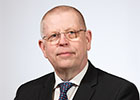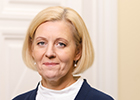Debate on the National Issue of Crucial Importance: "Strong Rural Schools and a Strong School Network"
Session: 15th Riigikogu, 3rd sitting, plenary session
Date: 2024-01-18 12:03
Participating Politicians:
Total Speeches: 132
Membership: 15
Agenda Duration: 3h 11m
AI Summaries: 132/132 Speeches (100.0%)
Analysis: Structured Analysis
Politicians Speaking Time
Politicians
Analysis
Summary
The Riigikogu debate on the matter of national importance, "Strong Rural Schools and a Strong School Network," focused on the sustainability of the Estonian education system, particularly against the backdrop of demographic changes and the teacher salary crisis. Heljo Pikhof, Chair of the Cultural Committee, emphasized that although streamlining the school network is inevitable, it must not lead to the wholesale closure of small rural schools, as this would be disastrous for regional development. Pikhof highlighted the need to balance the school network, noting that a quarter of students study in rural schools, yet these schools account for half of the total number of schools. As a solution, she proposed a model of multi-purpose community centers that would combine the school, library, and cultural spaces, and stressed the importance of alleviating the educational gap caused by socio-economic background.
Kristina Kallas, the Minister of Education and Research, affirmed the state's vision, according to which primary schools (grades 1–6) should remain close to home, but the upper secondary level (starting from 2035) should be concentrated in state gymnasiums to ensure high-quality academic preparation. The Minister emphasized that the reorganization of the education network is necessary for the better deployment of teachers and to support the transition to Estonian-language instruction. Erli Aasamets, Director of Kilingi-Nõmme Gymnasium, and Lauri Luur, Mayor of Tori Rural Municipality, offered the perspectives of local governments, stressing the importance of data-driven decisions, local autonomy, and investments. Aasamets presented the success story of Saarde Rural Municipality, where systemic reform has ensured a stable student body and filled positions, while Luur emphasized a broader concept of education, which also includes hobby education and youth work.
Decisions Made 1
The Riigikogu did not pass any resolutions during the debate, as the session concerned a discussion of a matter of significant national importance.
Most Active Speaker
The most active politician was Heljo Pikhof, the chair of the Culture Committee, who opened the debate with a comprehensive report and subsequently answered six questions. Pikhof represented the stance of the lead committee, which emphasized the necessity of educational reform to ensure the dignity of the teaching profession and the quality of education, particularly in rural areas. Her presentation was detailed, drawing on studies conducted by the Foresight Centre, and proposed concrete solutions such as the community center model and mechanisms for compensating for socio-economic background. Pikhof’s position was pro-reform, but she simultaneously stressed the importance of maintaining rural schools from the perspective of regional development.
Aseesimees Jüri Ratas
AI Summary
Jüri Ratas notes that today's agenda item is the nationally important issue, initiated by the Cultural Committee, titled "Strong Rural Schools and a Strong School Network." He mentions that several speakers will give presentations during the debate, and no decision will be adopted at the conclusion, and he invites Heljo Pikhof to take the floor at the Riigikogu podium.

Heljo Pikhof
Profiling Sotsiaaldemokraatliku Erakonna fraktsioonAI Summary
To keep the Estonian state and its people educated, we must address the inequalities between rural and urban schools and the teacher shortage. This requires increasing investment and flexibility, taking into account the socio-economic background of families, and creating multi-purpose, energy-efficient community centers that house schools and other essential services. Furthermore, we must promote inter-municipal cooperation and online learning to ensure a quality education for every child and raise the prestige and dignity of the teaching profession.
Aseesimees Jüri Ratas
AI Summary
Jüri Ratas thanked the rapporteur and announced that the Culture Committee intends to grant Riigikogu members the right to ask each presenter up to two questions. Jaak Aab was then asked to pose the questions.
AI Summary
Jaak Aab stressed that the future of rural schools and the entire education system needs to be discussed as a matter of national importance. He also pointed out the impact of the strike, regional disparities, and income gaps, and asked what measures could be implemented to narrow those divides.

Heljo Pikhof
Profiling Sotsiaaldemokraatliku Erakonna fraktsioonAI Summary
Heljo Pikhof points out that Estonia suffers from an income-based education gap, placing rural schools at a disadvantage. Consequently, there is a need to implement measures that level the playing field regarding students' backgrounds and boost funding. This is essential to minimize the influence of socio-economic background, ensure schools remain socially diverse, utilize the experiences of other countries, and avoid stigmatizing pupils.
Aseesimees Jüri Ratas
AI Summary
Deputy Speaker Jüri Ratas calls upon Urve Tiidus to speak.

Urve Tiidus
Profiling Eesti Reformierakonna fraktsioonAI Summary
Urve Tiidus thanked [the contributors] for the prepared materials and emphasized that while schools have many experienced teachers, and experience coupled with competence is valuable, attracting young people to the profession remains a significant challenge. She then inquired whether there were any effective slogans or taglines available to encourage young people to pursue teaching studies.

Heljo Pikhof
Profiling Sotsiaaldemokraatliku Erakonna fraktsioonAI Summary
If we want young people to enter the teaching profession, we need to overhaul the teachers' career model, reduce their excessive workload, guarantee salary increases, and ensure the teaching profession is properly valued. For example, in Finland, the teaching profession is held in high regard, even if the salaries aren't the absolute highest.
Aseesimees Jüri Ratas
AI Summary
Helle-Moonika Helme is called upon to speak at the beginning of the address.

Helle-Moonika Helme
Profiling Eesti Konservatiivse Rahvaerakonna fraktsioonAI Summary
Helle-Moonika Helme thanked the rapporteur and stated that the issue of the education gap had been thoroughly debated in the Culture Committee, specifically addressing the gap stemming from location of residence and economic well-being. Furthermore, a value-based education gap was also highlighted, the essence of which she requested clarification on.

Heljo Pikhof
Profiling Sotsiaaldemokraatliku Erakonna fraktsioonAI Summary
Briefly: a value-based approach to organizing education means that students in rural and urban schools receive equal attention.
Aseesimees Jüri Ratas
AI Summary
Vice-Chairman Jüri Ratas invites Kristina Šmigun-Vähi to the stage.

Kristina Šmigun-Vähi
Profiling Eesti Reformierakonna fraktsioonAI Summary
Kristina Šmigun-Vähi’s speech emphasized the need for teachers’ and coaches’ rights and fair feedback, while also expressing concern over the excessive rights afforded to today’s children. Simultaneously, she considered refining legislation to avoid raising a generation for whom hard work and effort are unacceptable.

Heljo Pikhof
Profiling Sotsiaaldemokraatliku Erakonna fraktsioonAI Summary
Heljo Pikhof emphasizes that nothing can be set in stone by law, and parents have a big job to do, but the main thing is to achieve the appreciation of the teaching profession in society, and measures are being implemented to that end, which the minister will speak about in more detail.
Aseesimees Jüri Ratas
AI Summary
Deputy Chairman Jüri Ratas asks to give the floor to Anti Allas.

Anti Allas
Profiling Fraktsiooni mittekuuluvad Riigikogu liikmedAI Summary
Anti Allas said that the speaker’s address was like a balm to him, a believer in small rural schools, and he considered the rigid, black-and-white school reform spreading at the state level to be destructive to rural life. He then asked whether the Foresight Centre could draw up a vision for rural schools for the year 2040.

Heljo Pikhof
Profiling Sotsiaaldemokraatliku Erakonna fraktsioonAI Summary
Heljo Pikhof is presenting her 2040 vision for rural school community centers, where schools don't close down but instead cooperate, offering diverse spaces and virtual instruction. Teachers are highly valued, school funding is derived from community revenues, and the centers house the village library, a cultural center, and provide distance learning options, including a robotics teacher who instructs the Uulu school from 180 kilometers away.
Aseesimees Jüri Ratas
AI Summary
At the beginning of the address, Eero Merilind is invited onto the stage.

Eero Merilind
Profiling Fraktsiooni mittekuuluvad Riigikogu liikmedAI Summary
Merilind expressed concern about educational inequality, which is concentrated in peripheral areas, noted a connection with health, and asked whether the starting grants established last year for nurses and doctors could serve as an example, help equalize education, and bring better teachers to rural areas.

Heljo Pikhof
Profiling Sotsiaaldemokraatliku Erakonna fraktsioonAI Summary
Heljo Pikhof said that the higher salary in Ida-Virumaa demonstrates how relocation to rural areas could be incentivized, and a starting allowance could certainly be one such measure.
Aseesimees Jüri Ratas
AI Summary
The Deputy Speaker, Jüri Ratas, thanked the rapporteur for the presentation and the answers, and invited the Minister of Education and Research, Kristina Kallas, to the Riigikogu rostrum to deliver her address.
Haridus- ja teadusminister Kristina Kallas
AI Summary
The Minister of Education and Research greets the Speaker and members of the Riigikogu and notes that he has the wrong presentation.
Aseesimees Jüri Ratas
AI Summary
Vice-Chairman Jüri Ratas asks whether he should give you your presentation.
Haridus- ja teadusminister Kristina Kallas
AI Summary
Minister of Education and Research Kristina Kallas said that she had received a second briefing, but she intends to move forward with the report.
Aseesimees Jüri Ratas
AI Summary
The presentation should focus on a topic related to the Riigikogu's OTRK.
Haridus- ja teadusminister Kristina Kallas
AI Summary
The speech is brief: first, an apology is offered, and then a clear yes is given.
Aseesimees Jüri Ratas
AI Summary
The speech addressed the topic of education.
Haridus- ja teadusminister Kristina Kallas
AI Summary
Kristina Kallas emphasized that the fundamental principles of Estonian education must be clearly articulated, and that the Estonian education system is built bottom-up from the community, rather than being created top-down by the state.
Aseesimees Jüri Ratas
AI Summary
Deputy Speaker Jüri Ratas apologized to the presenter, asked Pipi-Liis Siemann whether she had a procedural question, and said that he thought something had happened.
Haridus- ja teadusminister Kristina Kallas
AI Summary
Kristina Kallas confirmed that the Estonian education system is built from the bottom up on autonomy, an evidence-based curriculum, and the assurance of uniform quality, where decisions closest to the child are made by the teacher together with the school community, and the goal of reorganizing the school network is to ensure local, inclusive education, and by 2035, the state will assume responsibility for the study places at the upper secondary level.
Aseesimees Jüri Ratas
AI Summary
I thank the Minister for the presentation and note that we have questions—Urmas Kruuse, please.

Urmas Kruuse
Profiling Eesti Reformierakonna fraktsioonAI Summary
Urmas Kruuse confirmed that to ensure the sustainability of the teaching profession, a network reform is necessary, and the school network must be reviewed across municipal boundaries, focusing on the location of residents. Furthermore, the pace of the reform must be accelerated, because by 2035, it will be too late.
Haridus- ja teadusminister Kristina Kallas
AI Summary
Minister of Education and Research Kristina Kallas stated that the Estonian school network needs to be examined holistically, and the upper secondary school network must be centralized at the national level. This is intended to prevent every local municipality from having its own upper secondary school. To implement this, planning must be executed within a 50-kilometer radius, requiring cooperation between associations of local governments and inter-county collaboration.

Urve Tiidus
Profiling Eesti Reformierakonna fraktsioonAI Summary
He/She notes that changes are a natural part of development, and asks the Minister what is expected of local governments so that the changes taking place in the education network can progress and come to fruition.
Aseesimees Jüri Ratas
AI Summary
Vice-Speaker Jüri Ratas invited Urve Tiidus to speak.
Haridus- ja teadusminister Kristina Kallas
AI Summary
Minister of Education and Research Kristina Kallas said that the state is starting negotiations with 31 local governments regarding the transfer of their very small upper secondary schools and the associated study places under state administration.

Siim Pohlak
Profiling Eesti Konservatiivse Rahvaerakonna fraktsioonAI Summary
Siim Pohlak points out that the scaling back of the school network sounds like a euphemism, and asks, looking ahead to 2035, how the education network and regional policy have been aligned, and whether measures are planned to incentivize moving to the countryside.
Aseesimees Jüri Ratas
AI Summary
The Deputy Chairman invites Siim Pohlak to the stage.
Haridus- ja teadusminister Kristina Kallas
AI Summary
The education network reform must differentiate between primary school, basic school, and upper secondary school (gymnasium). It must preserve local schools for grades 1 through 6 and focus on reforming the upper secondary school network, given that half of basic school graduates today do not attend a local upper secondary school.
Aseesimees Jüri Ratas
AI Summary
Igor Taro is invited to the stage.
Igor Taro
AI Summary
The closure of the Kauksi school in Southeast Estonia demonstrates that, despite the community's active negotiations with the local government and the potential support offered by the national measure aimed at 6-grade rural schools, some municipalities remained skeptical. Meanwhile, the Setomaa municipality welcomed this measure very positively.
Haridus- ja teadusminister Kristina Kallas
AI Summary
Minister of Education and Research Kristina Kallas said that local governments have a very different attitude toward the measure intended for maintaining the school network, and although cities do not qualify, the stances in rural areas are highly variable.
Aseesimees Jüri Ratas
AI Summary
Deputy Speaker Jüri Ratas invites Peeter Tali to take the floor.

Peeter Tali
Profiling Fraktsiooni mittekuuluvad Riigikogu liikmedAI Summary
Peeter Tali highlights teachers' frustration and the varying levels of educational support provided by local municipalities, and asks whether the insufficient support from the Tallinn city government might provoke an Italian-style strike over the transition to Estonian-language instruction.
Haridus- ja teadusminister Kristina Kallas
AI Summary
Minister of Education and Research Kristina Kallas stated that the division of responsibility regarding teachers' salaries, working conditions, and the school network is causing confusion, and the solution is neither nationalization nor complete autonomy for local governments, but rather a tripartite education agreement between the state, local governments, and teachers, which clearly defines responsibilities and, where necessary, reforms.
Aseesimees Jüri Ratas
AI Summary
Deputy Speaker Jüri Ratas invites Maido Ruusmann to take the floor.

Maido Ruusmann
Profiling Fraktsiooni mittekuuluvad Riigikogu liikmedAI Summary
Maido Ruusmann highlighted that regional inequality in Estonia is palpable and that economic disparity is reflected in the education system. He then asked the minister what comprehensive measures have been considered to reduce regional inequality and better direct the development of children residing in remote areas.
Haridus- ja teadusminister Kristina Kallas
AI Summary
Minister of Education and Research Kristina Kallas said that educational inequality primarily stems from socio-economic background, and that regional differences are not so great because rural schools are achieving very good results. Furthermore, she noted that outcomes depend on school inputs and municipal investments, which ought to be distributed more fairly to ensure a modern learning environment for everyone.
Aseesimees Jüri Ratas
AI Summary
Deputy Speaker Jüri Ratas calls upon Andre Hanimägi to speak.

Andre Hanimägi
Profiling Fraktsiooni mittekuuluvad Riigikogu liikmedAI Summary
Andre Hanimägi pointed out that the bottom-up principle and the intention to reorganize the education network can lead to conflict with one another, demonstrating friction between the community and the local government. He then asked whether the state should sometimes intervene more strongly, and what the pros and cons of central intervention would be in the context of education reforms.
Haridus- ja teadusminister Kristina Kallas
AI Summary
Minister of Education and Research Kristina Kallas stated that changes to the education network are difficult, and by 2035, a consensus must be reached on a vision that includes small local schools, pro-gymnasiums concentrated in municipal centers, and larger gymnasiums, with the state maintaining the gymnasium level. However, this cannot be achieved through top-down imposition of law; instead, local governments, together with the state, will determine the number and location of schools and enter into agreements in accordance with the constitution.
Aseesimees Jüri Ratas
AI Summary
Only the name Tõnis Lukas was mentioned in the speech, which is why there is no substantive summary.

Tõnis Lukas
Profiling Isamaa fraktsioonAI Summary
He asks whether the government has achieved a breakthrough in ending the teachers' strike, raises the issue of preserving Lihula Gymnasium, and inquires whether the plan is to negotiate or provide support to the Lääneranna municipality to maintain local gymnasiums and avoid undermining its own primary schools.
Haridus- ja teadusminister Kristina Kallas
AI Summary
Minister of Education and Research Kristina Kallas stated that Lihula is an exception to the 50-kilometer radius rule, and each local authority handles relevant issues separately. We will continue negotiations, and the aim is to help prevent smaller schools from closing through the construction of a secondary school building. Regarding Metsküla school, the support for rural schools is specifically intended for institutions like this, but the decision by the Lääneranna municipality not to apply for the support is sad.
Aseesimees Jüri Ratas
AI Summary
Deputy Speaker Jüri Ratas thanks the Minister for both the presentation and the answers.
Haridus- ja teadusminister Kristina Kallas
AI Summary
Minister of Education and Research Kristina Kallas thanked the listeners.
Aseesimees Jüri Ratas
AI Summary
Deputy Speaker Jüri Ratas invited Erli Aasamets, the director of Kilingi-Nõmme Gymnasium, to the Riigikogu podium to give a presentation.
Kilingi-Nõmme Gümnaasiumi direktor Erli Aasamets
AI Summary
The main point of the presentation is that the Saarde Municipality has established an autonomous, research-based education system, where the optimal size of schools, stable student enrollment, and close cooperation with universities ensure high-quality and accessible education for the entire community.
Aseesimees Jüri Ratas
AI Summary
Vice-Speaker Jüri Ratas thanked the rapporteur, stated that there were questions, and asked Urmas Kruuse to present them.

Urmas Kruuse
Profiling Eesti Reformierakonna fraktsioonAI Summary
He praises the evidence-based approach and clear statistics, highlights the possibility of achieving political consensus and the necessity of considering Estonia's specific characteristics, and concludes by asking whether teachers are striking.
Kilingi-Nõmme Gümnaasiumi direktor Erli Aasamets
AI Summary
Erli Aasamets stated that school employees are divided into three equally valued positions regarding the strike—not striking, striking, and showing solidarity—and on Monday, grades 1–4 will be in school, while grades 5–12 will be on distance learning; by Tuesday, we will resume normal operations. The reason is not salary, but rather the additional workload and the strain caused by the funding model in recent years, and she calls on the Riigikogu (Estonian Parliament), in cooperation with the Estonian School Leaders' Association, to reform the Basic Schools and Upper Secondary Schools Act (PGS) to eliminate those tasks that do not require a higher education degree.
Aseesimees Jüri Ratas
AI Summary
The host asked Igor Taro to come to the stage.
Igor Taro
AI Summary
In his speech, Igor Taro raises the issue of teacher burnout and mental health, recommending the uniform distribution of the workload throughout the calendar year as a non-monetary measure. He also introduces the ideas of shortening the summer holiday and school days, questioning why this subject is avoided in Estonia.
Kilingi-Nõmme Gümnaasiumi direktor Erli Aasamets
AI Summary
Erli Aasamets emphasizes that if a teacher’s working hours are sensibly organized and the career model offers options, then 175 school days and 10–12 hour days do not automatically translate into overtime. However, the length of the school year and the question of extending it require a broader public discussion.
Aseesimees Jüri Ratas
AI Summary
Deputy Chairman Jüri Ratas asked Pipi-Liis Siemann to come onto the stage.

Pipi-Liis Siemann
Profiling Fraktsiooni mittekuuluvad Riigikogu liikmedAI Summary
The speaker thanks the chair and the presenter, emphasizes the importance of maintaining strong schools and optimizing the school network, and asks what the state could do to ensure that the same high standard of schooling and educational quality reaches small, six-grade rural schools, especially given the current teacher shortage.
Kilingi-Nõmme Gümnaasiumi direktor Erli Aasamets
AI Summary
The speaker proposed the idea that funding should be allocated based on the school or institution, rather than on a per-student basis. This approach would increase the accountability of the community and the local municipality, but it would require careful consideration and could introduce both advantages and disadvantages. Furthermore, the current inter-school redistribution of funds is causing tension.
Aseesimees Jüri Ratas
AI Summary
Vice-Chairman Ratas calls upon Peeter Tali to speak.

Peeter Tali
Profiling Fraktsiooni mittekuuluvad Riigikogu liikmedAI Summary
Peeter Tali thanks the director and asks how the Saarde municipality education system envisions the future in the medium and long term, what the challenges are, and what the cooperation plan will be ten years from now regarding early childhood education between Kilingi-Nõmme Gymnasium and Surju Basic School.
Kilingi-Nõmme Gümnaasiumi direktor Erli Aasamets
AI Summary
The report emphasizes that the education system must undergo long-term reform, focusing on issues related to early development and primary schooling, as well as reviewing the educational curriculum and network. This is necessary so that the plan is realistic by 2035, reduces student exclusion, and balances the burden placed on parents in early childhood education.
Aseesimees Jüri Ratas
AI Summary
Deputy Speaker Jüri Ratas invites Tanel Kiik to speak.

Tanel Kiik
Profiling Fraktsiooni mittekuuluvad Riigikogu liikmedAI Summary
Tanel Kiik asks about the teachers' career model, worrying that they are simply reinventing the wheel, since the previous system was abolished and is now being restored again, and he asks whether this will help solve the challenges facing the education sector.
Kilingi-Nõmme Gümnaasiumi direktor Erli Aasamets
AI Summary
Erli Aasamets said that the older model involved awarding titles through the employer, but today's system is based on professional competence and occupational standards, which the teacher verifies using their reflection and portfolio in front of professional assessors, including representatives of higher education institutions. Furthermore, the school has a strong career model, all positions are filled, and recruitment for teacher development is planned for the autumn of 2025.
Aseesimees Jüri Ratas
AI Summary
Deputy Chairman Jüri Ratas called Mait Klaassen.

Mait Klaassen
Profiling Eesti Reformierakonna fraktsioonAI Summary
I thank you very much for the excellent and systematic presentation. My question is: how do you convince families from diverse backgrounds across large regions that their children will receive a quality education? Do you work with these families individually, and are there also children who are homeschooled?
Kilingi-Nõmme Gümnaasiumi direktor Erli Aasamets
AI Summary
Erli Aasamets emphasizes that the school cannot be solely responsible for a child’s upbringing, and cooperation with parents must be strengthened, because only 22–25 percent of a child’s waking hours are under the school’s purview, and the rest is spent elsewhere.
Aseesimees Jüri Ratas
AI Summary
The speaker addresses Liina Kersna and asks for something.

Liina Kersna
Profiling Eesti Reformierakonna fraktsioonAI Summary
The presentation raises the point that if student capitation funds were tied directly to the school, rather than the school maintainer (or local authority), it would increase school budgets and enable the raising of teachers' salaries. However, the municipality currently distributes the money to smaller schools. This leads to the question of how your school has managed to pay higher salaries.
Kilingi-Nõmme Gümnaasiumi direktor Erli Aasamets
AI Summary
The Director explains that funds are distributed according to work performed and results achieved (funding via the ministry’s table, the support fund, and SEN funding). The school does not pay local governments, and although the 2011 model is considered sustainable, 100 students is the minimum, along with the 20:80 principle, annual competitive admission, and students coming from state gymnasiums. However, for a more distant school with 47–50 students, a functional option would be possible with a capable head of studies, allowing resources to be directed toward complex specializations and learners with special needs, and reducing the dropout rate.
Aseesimees Jüri Ratas
AI Summary
Deputy Chairman Jüri Ratas invites Margit Sutrop to speak.

Margit Sutrop
Profiling Eesti Reformierakonna fraktsioonAI Summary
Margit Sutrop emphasizes that a strong school equates to a good education, and this requires a competent school operator—one who is able both to support and demand high-quality education and allocate the necessary funding for it. She then asks the Riigikogu and the viewers to state who, in their opinion, constitutes a good school operator.
Kilingi-Nõmme Gümnaasiumi direktor Erli Aasamets
AI Summary
This address highlights the trust and excellent cooperation between the school and the municipality, where the budget is only three lines long, monthly consultations are held, and there is no need for excessive bureaucracy or strict limitations.
Aseesimees Jüri Ratas
AI Summary
Jüri Ratas thanked the presenter and the answers (provided), wished strength to Saarde Municipality and success to Kilingi-Nõmme Gymnasium, and invited Lauri Luuri, a member of the board of the Estonian Association of Cities and Municipalities and the Mayor of Tori Municipality, to the Riigikogu rostrum to deliver a speech.
Tori vallavanem Lauri Luur
AI Summary
I want to emphasize that streamlining the school network is essential for local governments. Furthermore, the development of functional support centers—like Lihula, Vändra, and Kilingi-Nõmme—must be pursued with corresponding investments. Supporting youth and extracurricular education, as well as sports, is also crucial to ensure the viability of the school network in the rural areas and allow the municipality to develop overall.
Esimees Lauri Hussar
AI Summary
The presenter is thanked, a round of questions is announced, and Urmas Kruuse asks the first question.

Urmas Kruuse
Profiling Eesti Reformierakonna fraktsioonAI Summary
Urmas Kruuse stated that reforms should focus on improving cooperation between local governments and ensuring the provision of the best education and services corresponding to the population distribution. He warned that if this cooperation fails, the next administrative reform could reduce the number of local governments from 78–79 to approximately 50.
Tori vallavanem Lauri Luur
AI Summary
Tori Mayor Lauri Luur stated that a nationwide association is unsuitable for resolving school network issues, arguing that the best cooperation occurs at the county-level association. He added that while administrative reform might facilitate progress, this is not always necessarily the case.
Esimees Lauri Hussar
AI Summary
Chairman Lauri Hussar invited Igor Taro to speak next.
Igor Taro
AI Summary
Igor Taro asks how the government's measures—aimed at maintaining rural schools up to the 6th grade, optimizing the primary and basic school network, and developing the regional funding component—could strengthen the education system, and what the assessment of their impact would entail.
Tori vallavanem Lauri Luur
AI Summary
Lauri Luur stressed the trust required for cooperation between schools and local authorities, noting that the small school subsidy won't solve the issues of all schools and that regional inequality has increased. Consequently, sensible redistribution and the strengthening of local services are necessary, even though he simultaneously agrees with the measures put forward by Minister Madis Kallas.
Esimees Lauri Hussar
AI Summary
Chairman Lauri Hussar invites Pipi-Liis Siemann to the stage.

Pipi-Liis Siemann
Profiling Fraktsiooni mittekuuluvad Riigikogu liikmedAI Summary
Siemann stresses that keeping schools open merely for the sake of old traditions will not sustain the region. Rather, regional policy measures must be implemented, and the school network needs to be structured according to the needs of the people who live and work there.
Tori vallavanem Lauri Luur
AI Summary
This is quite a complex issue, and the solution isn't a single fix, but rather a holistic approach. This approach requires a strong social infrastructure, maintaining quality and implementing developments across the education network, extracurricular activities, bus transport, electricity, roads, internet access, and job creation in both rural areas and county centers.
Esimees Lauri Hussar
AI Summary
Chairman Lauri Hussar asks Tõnis Lukas to speak.

Tõnis Lukas
Profiling Isamaa fraktsioonAI Summary
Tõnis Lukas emphasizes that local governments are very different regionally and socially, and transferring one model to everyone is difficult; he supports the state measure for schools up to the 6th grade, noting that it is good for resolving disparities, but last year it was delayed and accompanying practical problems arise, and asks how, for example, combining the management of three or four schools helps educational institutions remain viable.
Tori vallavanem Lauri Luur
AI Summary
Lauri Luur notes that merging management could be a sensible way to distribute the workload, enhance cooperation with support staff, and maintain the sense of community. However, he stresses that an overly large management structure can lead to negative consequences, and Tori municipality, which has five schools, is not planning to move forward with such a combination.
Esimees Lauri Hussar
AI Summary
The Chairman thanks his colleague Urmas Kruuse and asks him for something.

Urmas Kruuse
Profiling Eesti Reformierakonna fraktsioonAI Summary
Urmas Kruuse asked for a brief explanation of the background of the 60,000 euro example and clarification on how it could act as a motivator for local government reforms, emphasizing that funding for Estonian education is high and that solutions are sometimes found for transportation issues due to the priority placed on the school building.
Tori vallavanem Lauri Luur
AI Summary
School buildings were constructed at different times, and some of them are 40–50 years old, worn out, and their energy efficiency does not meet modern requirements. Therefore, in the context of the school network reform, it is necessary to renovate these buildings and provide a boost to local governments through investment components.
Esimees Lauri Hussar
AI Summary
Chairman Lauri Hussar called Kristina Šmigun-Vähi to the stage.

Kristina Šmigun-Vähi
Profiling Eesti Reformierakonna fraktsioonAI Summary
Kristina Šmigun-Vähi emphasized inter-municipal cooperation in hobby education, illustrating that one municipality could take children to another municipality to a good folk dance teacher, offering transport and assistance, without that one municipality having to cover everything itself, and asked if this was a lifeline.
Tori vallavanem Lauri Luur
AI Summary
Lauri Luur said that local governments settle the costs of hobby education between municipalities, and Tori municipality does not restrict this, but more distant municipalities face significant budgetary pressure and lack infrastructure, which is why a larger territory must be considered; cooperation is indeed working, but the challenge is great because the share of participants in hobby activities is growing faster than the revenue base.
Esimees Lauri Hussar
AI Summary
Chairman Lauri Hussar offers his thanks and invites Annely Akkermann to the floor.

Annely Akkermann
Profiling Eesti Reformierakonna fraktsioonAI Summary
Annely Akkermann cites Saarde municipality's successful adaptation of its education network to demographic changes as an example, and asks how the mayor of Tori might view the plan to merge small schools, considering that Lääneranna municipality has actively worked against it.
Tori vallavanem Lauri Luur
AI Summary
Lauri Luur emphasizes that the Tori municipality has reorganized its school network and must maintain five support centers—covering hobby education, youth work, school, and kindergarten—because the reform, carried out autonomously by the local government, is aimed at achieving long-term results. This is despite the fact that closures occurring over too short a timeframe have created problems, as demonstrated by the situation in Lääneranna, and Saarde and other Pärnu County municipalities are following the same route.
Esimees Lauri Hussar
AI Summary
The Chairman offers his thanks and turns to Anti Allas with a request.

Anti Allas
Profiling Fraktsiooni mittekuuluvad Riigikogu liikmedAI Summary
Anti Allas wants to know how to sustainably organize the schools of two former municipalities in a single location, taking into account approximately 50 students and kindergarten children, as well as communities located 12–15 kilometers away. He is asking for advice on how to reconcile the communities, implement the ideas of the Foresight Centre, or find a third way that would keep school life and the entire region vibrant.
Tori vallavanem Lauri Luur
AI Summary
Lauri Luur notes that the Foresight Centre’s recommendation to establish schools on the borders of local municipalities must be evaluated based on the settlement pattern and the quality of governance. He adds that when a school is consolidated or closed, the community must be offered a 'sweetener' in return—an incentive that could also be supported nationally and facilitate investments in the region—to prevent major disputes from breaking out.
Esimees Lauri Hussar
AI Summary
The Chairman declares the report concluded and the debates open, and first invites Tõnis Lukas, the representative of the Isamaa faction, to speak.

Tõnis Lukas
Profiling Isamaa fraktsioonAI Summary
Isamaa emphasizes regional balance and quality education for all children in Estonia, where the base salary is set at the national level, and the sustainability of rural schools and sparsely populated areas is ensured through initial support grants and special provisions.
Esimees Lauri Hussar
AI Summary
Chairman Lauri Hussar requested three minutes of extra time.

Tõnis Lukas
Profiling Isamaa fraktsioonAI Summary
Tõnis Lukas emphasizes fairer funding for local governments and a reform of the hinterland coefficient, ensuring that internal migration does not unfairly skew tax revenue collection around cities, and that the state guarantees the preservation of schools in small and sparsely populated areas through a unified education policy, thus securing the future prospects of children.
Esimees Lauri Hussar
AI Summary
Chairman Lauri Hussar asks the members to vote on the motion to extend today’s session until 14:00, so that everyone who wishes to speak has the opportunity to deliver their remarks.
Esimees Lauri Hussar
AI Summary
The motion to extend today's sitting was adopted by 28 votes in favor, with no votes against and no abstentions. We will now continue the debate, and next to take the floor will be Riigikogu member Kadri Tali, speaking on behalf of the Eesti 200 faction.

Kadri Tali
Profiling Fraktsiooni mittekuuluvad Riigikogu liikmedAI Summary
Schools are the heart of society, and the implementation of Education Minister Kristina Kallas's plan today, coupled with teacher support and investments made in education, will secure the school network and the future of our children.
Esimees Lauri Hussar
AI Summary
The Chairman thanked the previous speaker and invited Vadim Belobrovtsev, on behalf of the Center Party faction, to the Riigikogu rostrum to speak next.

Vadim Belobrovtsev
Profiling Eesti Keskerakonna fraktsioonAI Summary
He thanks them and immediately asks for three more minutes.
Esimees Lauri Hussar
AI Summary
Chairman Lauri Hussar requests three minutes of extra time.

Vadim Belobrovtsev
Profiling Eesti Keskerakonna fraktsioonAI Summary
The speech highlights that rural schools are the heart of community vitality, and their sensible preservation—as opposed to simply closing all of them—demands cooperation between the state and local governments, an approach suitable for local conditions, and investment in teachers, technology, and strengthening community ties.
Esimees Lauri Hussar
AI Summary
The Speaker thanks the colleague and invites Mart Helme, member of the EKRE faction, to the Riigikogu rostrum to speak.

Mart Helme
Profiling Eesti Konservatiivse Rahvaerakonna fraktsioonAI Summary
Mart Helme claims that the root cause of the school network problems is not funding or the merging of schools, but the absence of regional policy, which fails to ensure employment, vitality, and low birth rates in rural areas. Therefore, merging community centers and schools is only a temporary solution—if there are no children, there can be no school.
Esimees Lauri Hussar
AI Summary
Chairman Lauri Hussar requests three minutes of additional time.

Mart Helme
Profiling Eesti Konservatiivse Rahvaerakonna fraktsioonAI Summary
Mart Helme notes that the population and the number of schools are declining in Estonian rural areas, and the closure of schools forces families to move away. Therefore, the solution lies in implementing strong regional policy, boosting employment and investment, and raising the birth rate.
Esimees Lauri Hussar
AI Summary
The Speaker thanks [the assembly], and on behalf of the parliamentary group, invites Jevgeni Ossinovski to the Riigikogu rostrum to speak, and requests three minutes of additional time.
Jevgeni Ossinovski
AI Summary
Jevgeni Ossinovski emphasized that the Estonian education system is world-class and that the streamlining of the school network must be carried out carefully and with a focus on quality, by increasing teachers' salaries and taking regional balance into account, rather than hoping to free up resources by closing schools.
Esimees Lauri Hussar
AI Summary
The Speaker thanked [her/him] and invited Margit Sutrop to the Riigikogu rostrum to speak on behalf of the Reform Party Faction.

Margit Sutrop
Profiling Eesti Reformierakonna fraktsioonAI Summary
Even though the world has changed, with declining birth rates and ongoing urbanization, it is necessary to maintain strong rural schools and a well-functioning school network. This network must start with excellent teachers and focus on student development and the acquisition of essential life skills, while also keeping alive historically valuable community centers like Unipiha school.
Esimees Lauri Hussar
AI Summary
Chairman Lauri Hussar asks for three more minutes.

Margit Sutrop
Profiling Eesti Reformierakonna fraktsioonAI Summary
Margit Sutrop emphasizes that thorough reforms must be undertaken to ensure quality education: improving teachers' workload and salaries, reforming curricula and the school network, utilizing technology, and integrating community educational institutions and non-formal educational activities – the Reform Party is ready to implement these reforms alongside the minister.
Esimees Lauri Hussar
AI Summary
Chairman Lauri Hussar offered his thanks and invited his colleague Jürgen Ligi to the podium to speak.
Jürgen Ligi
AI Summary
In his speech today, Jürgen Ligi highlighted the implementers of school reforms and warned against resistance, citing the examples of Saarde and Lääneranna. He stressed that the sensible use of funds allocated to education and adherence to state recommendations are important.
Esimees Lauri Hussar
AI Summary
The discussions have concluded. A huge thank you to all the presenters and participants for the thorough and wide-ranging debate. We will meet again next week in the main hall.
